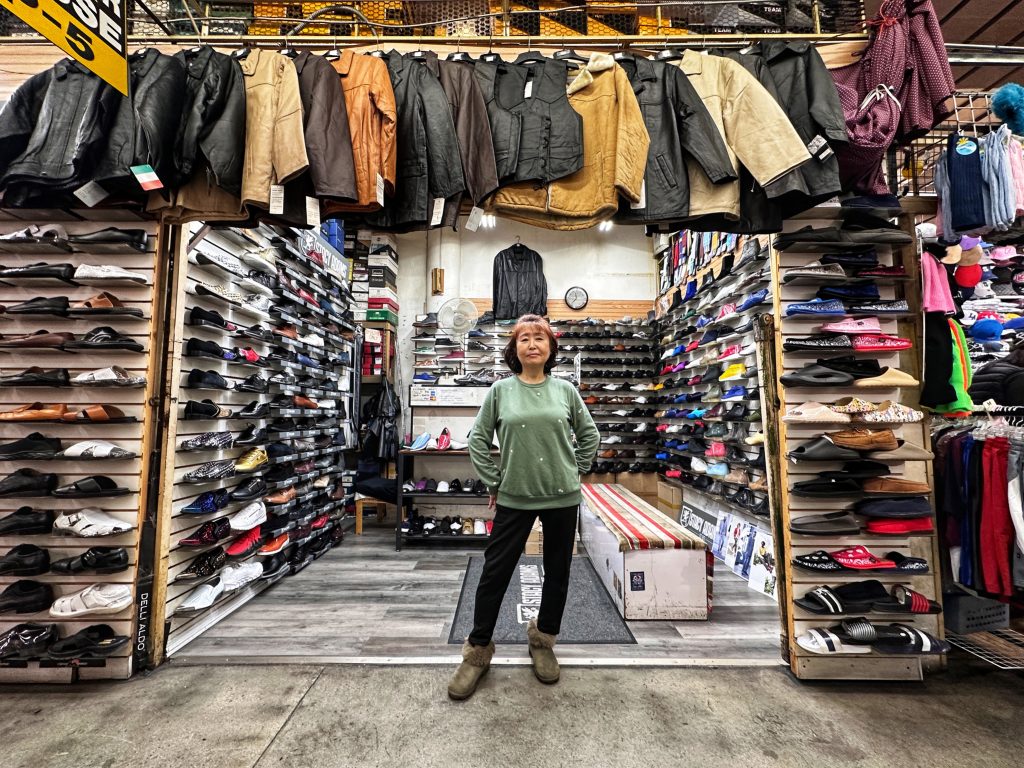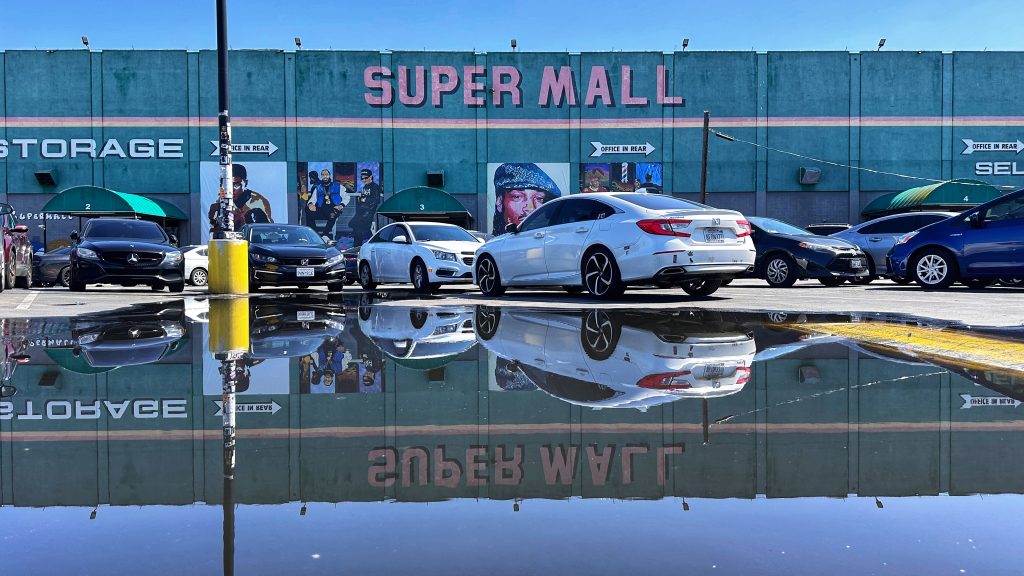A “swap meet” is more than just a conventional marketplace; it’s a history of early Korean immigrants struggling to make ends meet.
Swap meets are disappearing one by one. Over the past few years, several popular swap meets have closed, including Union Swap Meet (L.A.), Alpine Swap Meet (Torrance), Saugus Swap Meet (Santa Clarita), Fiesta Swap Meet (South L.A.), and Sunnyside Swap Meet (Fresno).
The LA Times reported on March 8 that the final chapter is nearing for the Korean-American owners of Slauson Supermall, a popular L.A. swap meet that has been in business for nearly 40 years.
The LA Times said, “Now, many are approaching retirement, with the swap meet in decline as customers migrate to the internet. The long hours at their stalls paid for their children’s college educations — by design, the next generation won’t be taking over.”

The Korea Daily also visited the swap meet on March 8 and met with the owners. The swap meet is an echo of the Korean immigration of the 1980s. Slauson Swap Meet opened in 1985.
Owner Christine Na, 65, has been selling shoes and other leather goods here since 1988. “I made money here, bought a house, and raised my kids well,” she said. “I’m thinking of retiring in two or three years because things are not as good as they used to be, and it’s a place that holds memories of my immigrant life.”
Currently, there are about 120 businesses in the area. About 80 of them are run by Korean-American business owners. There are also small Korean restaurants selling various Korean dishes. It is a place where the daily lives of Korean immigrants are naturally integrated.
The owners of Slauson Swap Meet have gone through the history of the April 29 Riots (1992). At that time, it was black people and Korean immigrants who protected the swap meet, which was mainly run by Korean immigrants.
“We were closed for almost three weeks,” said Na, “and there were about 10 Korean owners and black security guards who stayed at Swap Meet to protect us, and although the riots were very painful, we were able to keep it open because of them.”
The Korean-American business owners’ words and stories are vividly infused with immigrant life.
“It’s true that your immigrant life is defined by who picks you up at the airport,” said Timothy Chung, 75, who owns a clothing store.
“I came to the U.S. in 1983, and I got into the swap meet business because of a friend who picked me up at the airport,” he said. “I’ve been working nonstop since then, and my two sons are working as a pharmacist and a bioengineer, so they’re not going to take over my business.”
Slauson Swap Meet had its moments of glory. In the 1990s and early 2000s, it was so busy that customers had to use a nearby church parking lot because there wasn’t enough parking.
Compared to other swap meets, Slauson Swap Meet is still better off because it’s so popular, but it’s definitely not what it used to be.
Online shopping has made it harder to attract younger customers, and the demolition of buildings due to the development craze has left less and less space for swap meets.
For immigrants, Swap Meet has been the site of hard work to fulfill the American dream. It embodied the ups and downs of immigrant life.
“Many people, including Koreans and Latinos, made a living at the swap meet and contributed to the story of immigrants,” said Hae Jin Lee, who ran a restaurant at the now-demolished Union Swap Meet. “Seeing the end of the swap meet makes me feel that an era is coming to an end.”
Swap Meet has a history of Korean immigration. Their hard-fought immigrant life is now a memory.





